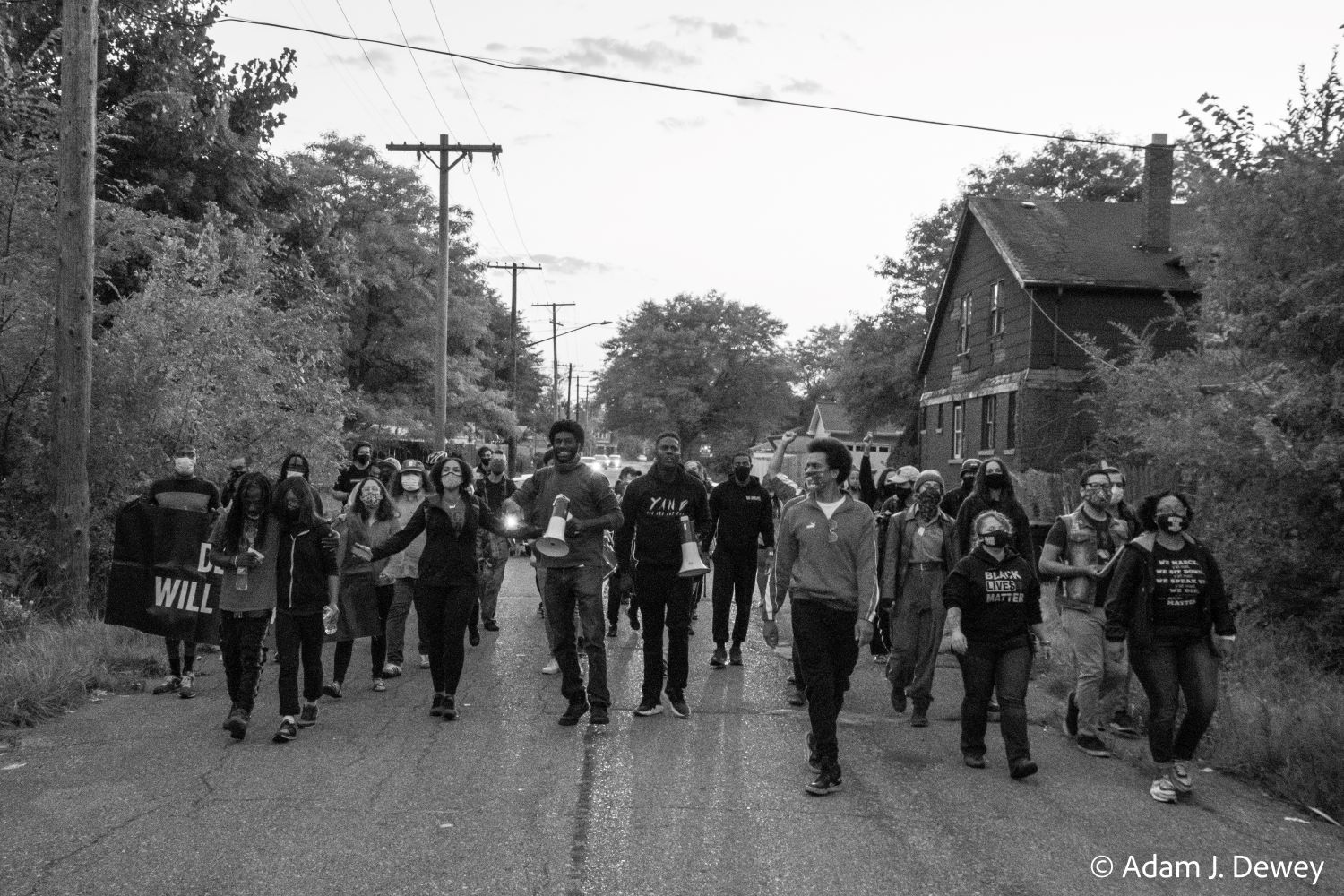Despite a year of grievous health crises and economic challenges, we end 2020 affirming the work that is being done to advance the relationships with one another and to promote social justice. The ongoing uprisings and grassroots resistance against racist police brutality have opened new possibilities for change. The leadership of Black, Brown, and Indigenous people reflects a growing consciousness of the deep-seated structural changes necessary to achieve justice. Calls are growing for reallocating resources toward community-led initiatives instead of police. In Detroit, grassroots activists, some members of the city council, and the Charter Commission are preparing the ‘Detroiters’ Bill of Rights’ to provide a more compassionate foundation for our new charter. If approved by Detroit residents, the year 2021 promises to bring a more inclusive, democratic political process to our city, based on values that protect our people and our earth.
The progress made on the Detroiters’ Bill of Rights, the resistance to police brutality, and the overall increase in community consciousness are important steps toward a world in which everyone enjoys the rights to basic needs and the right to a full, productive, creative life.
We’ve featured Hakim Littleton on the cover of this issue because his actions in the face of a life-threatening situation demand more reflection, especially in this moment of global resistance to ongoing racist police brutality. This reflection requires seeing ourselves in Hakim’s place and analyzing police actions with the same degree of critique many raise of Hakim’s actions. It demands that we look at the police video and see a system at work that leads to the death of a young man walking down the street to visit a friend. It demands that we imagine a different outcome for Hakim and the thousands of Black and Brown youths whose lives are at risk. If resources were redirected away from policing and surveillance and toward our neighborhoods— to housing, water, and food security, quality medical care, green spaces for recreation, playgrounds, and cultural events— we could create real safety in our communities.
With the new challenges brought forth by widespread uprisings for justice and catastrophic casualties of a global pandemic, we are realizing the level of transformation needed in ourselves to reimagine and recreate the failing systems that have oppressed us. We are learning that transformation begins with truth-telling. Young people of all ethnicities are struggling for a relevant education, one that will honestly address the origins of this country and the violence of settler colonialism. The realities of land dispossession, forced labor, and white supremacy are being confronted. What will real healing from centuries of unceasing oppression look like? This year, with all its loss and pain, is a time when new, visionary leadership is emerging, pointing the way toward radical social change. And this leadership, oftentimes, is coming from young people who are acting and reacting as they face questions of collective survival.
This change will not be easy. And it won’t come from those in power. Much as we welcome new authority in the White House, we know their commitment is to return to a “normal” that has been killing us and destroying our planet. Once again, Riverwise offers perspectives on abuses of power that begin and end with people most-impacted. In Detroit, the dispossession of Black-owned land continues unabated through inflated tax assessments and foreclosures. We feature a poetic acknowledgment of the homes being demolished across the city, and the loss of our collective memories as communities are erased. Resistance to these assaults on what we value requires organizing our energies at the community level. The chronicles of a protracted effort to form a block club on Detroit’s west side offer us lessons in grassroots organizing and developing new relationships.
In this year of so much loss, Riverwise offers a special tribute to the life of Detroit Poet Laureate and founder of Lotus Press, Dr. Naomi Long Madgett. She was a poet of extraordinary talent and a beloved visionary who laid the path for countless other Black writers to succeed. We are thankful for co-editor Gloria House’s thoughtful commemoration of Dr. Madgett’s exemplary life.
Finally, we look forward to a time when all our children can grow and develop their unique gifts, in safety and in joy. We offer this edition as our contribution to creating this new world and look forward to the collective struggle in 2021.
Peace and love as we welcome a new year,
The Riverwise Collective


